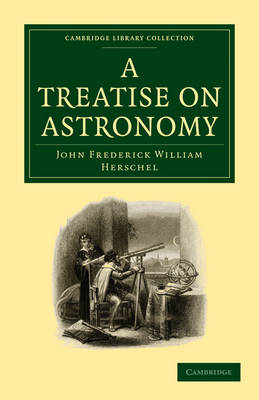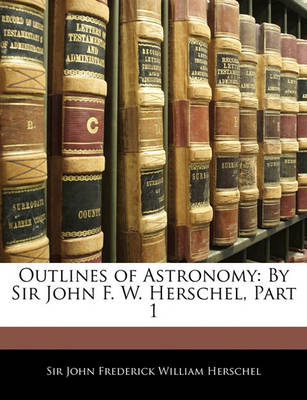Cambridge Library Collection - Astronomy
3 total works
Astronomer and philosopher Sir John Herschel (1792–1871), the son of William and the nephew of Caroline, published his 1833 Treatise on Astronomy in the 'Cabinet Cyclopaedia' series of which the first volume had been his enormously successful Preliminary Discourse on the Study of Natural Philosophy. He is regarded as the founder of the philosophy of science, and made contributions in many fields including mathematics, the newly discovered process of photography, and the botany of southern Africa, which he studied while making astronomical observations of the southern hemisphere, and where he was visited by Darwin and Fitzroy on the Beagle voyage. It was however as the natural successor to his father's astronomical studies that he is best remembered, and this book, which is written for the interested lay person, places strong emphasis on the importance of accurate observation and on avoiding preconceptions or hypotheses not based on such observation.
Sir John Frederick William Herschel (1792-1871) - astronomer, mathematician, chemist - was one of the most important English scientists of the nineteenth century. Son of the famous astronomer William Herschel and nephew of Caroline, he was persuaded by his father to pursue the astronomical investigations William could no longer undertake; John's subsequent career resulted in a knighthood and a lifetime of accolades. Outlines of Astronomy (1849), an updated and expanded version of his 1833 Treatise on Astronomy, went through eleven editions in two decades and was translated into several languages. Outlines examines terrestrial and celestial phenomena, providing the reader with a wide range of knowledge about the physical world as a whole. The work is an important textbook, the object of which 'is not to convince or refute opponents, nor to inquire ... for principles of which we are all the time in full possession - but simply to teach what is known'.
Essays from the Edinburgh and Quarterly Reviews
by Sir John Frederick William Herschel
Published 17 July 2014
First published in 1857, this work comprises assorted noteworthy writings by the mathematician and astronomer Sir John Herschel (1792–1871), reflecting his diverse scientific and literary interests. It includes a piece on terrestrial magnetism, a review of William Whewell's writings on the history and philosophy of science, and several addresses to the Royal Astronomical Society. Of particular interest is Herschel's commentary on Adolphe Quetelet's work on probability, which advocated applying statistics and probability calculus to social and political questions. Herschel's article not only influenced the growth of social science in Britain, but also played an important role in James Clerk Maxwell's development of a statistical treatment of heat phenomena. Also included in this collection are Herschel's translations of poems by Schiller (accompanied by the original German) as well as examples of his own verse. In an intriguing appendix, Herschel outlines a method for compiling vocabularies of indigenous peoples.


